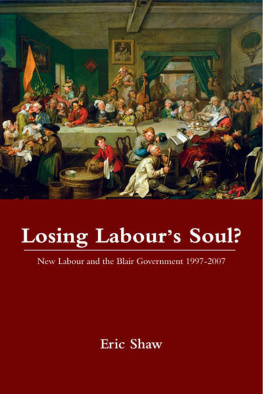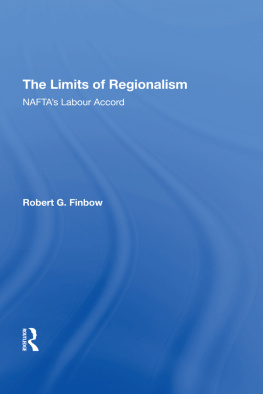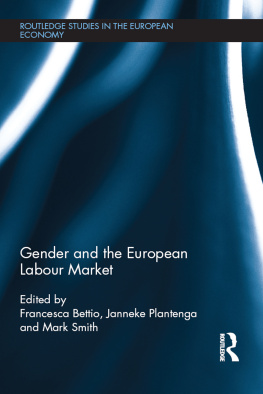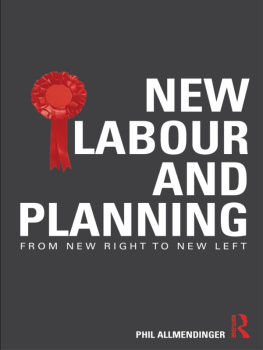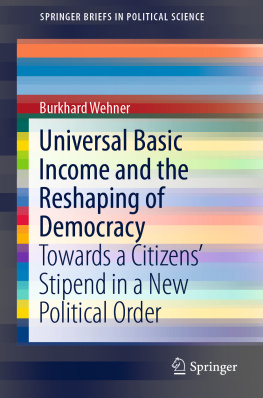Delivering Benefits in Old Age
Delivering Benefits in Old Age
The Take up of the Minimum Income Guarantee
Paul Dornan
Child Poverty Action Group, UK
First published 2006 by Ashgate Publishing
Reissued 2018 by Routledge
2 Park Square, Milton Park, Abingdon, Oxon OX14 4RN
711 Third Avenue, New York, NY 10017, USA
Routledge is an imprint of the Taylor & Francis Group, an informa business
Paul Dornan 2006
Paul Dornan has asserted right under the Copyright, Designs and Patents Act, 1988, to be identified as the author of this work. The views represented in this book are the author's own and not necessarily those of Child Poverty Action Group.
All rights reserved. No part of this book may be reprinted or reproduced or utilised in any form or by any electronic, mechanical, or other means, now known or hereafter invented, including photocopying and recording, or in any information storage or retrieval system, without permission in writing from the publishers.
A Library of Congress record exists under LC control number: 2005032392
Notice:
Product or corporate names may be trademarks or registered trademarks, and are used only for identification and explanation without intent to infringe.
Publisher's Note
The publisher has gone to great lengths to ensure the quality of this reprint but points out that some imperfections in the original copies may be apparent.
Disclaimer
The publisher has made every effort to trace copyright holders and welcomes correspondence from those they have been unable to contact.
ISBN 13: 978-0-815-38847-0 (hbk)
ISBN 13: 978-1-351-16016-2 (ebk)
The core of this book developed, as did I, over four years spent at the University of York, a long, challenging, fascinating process and one which has brought me into contact with people who have, in different ways, influenced my thinking. I have met policy makers, researchers, students and pensioners; those who formulate policy, study and experience it. Many, particularly pensioner and advice worker respondents, gave generously of their time to talk to me. Part way though this study took a quantitative turn but this study, and my own understanding, would be the poorer without my having heard their experiences.
I do not wish to name check a lot of people, not because they are not worth it but rather because to do so is to decide who to include: they all deserve my thanks and they have them. I will make some exceptions. Collectively I wish to thank the members of A-block at the University of York. Thence to specific individuals, Jonathan Bradshaw, an inspiration in how to balance research rigour with personal passion and Anne Corden, for picking me up in the early stages of research, for being an (sometimes unnervingly) expert listener and, ultimately, for letting me go my own way. John Hudson for friendship, joint-research, Red-Bull Vodka and a constant stream of ideas. Caz Pomfret (nee Snell) for friendship and for going through it with me. I greatly appreciated the thoughts of Peter Kemp and Mike Noble whose comments have improved it greatly.
Beyond academe I would like to thank my then flat-mates, Matt and Helen for late night discussion and for support when asked for, but mostly for putting up with me. I thank my parents for the love that they have always given, for my mother's care, for my father's continued interest in my work and for their joint forgiveness of lengthening timetables. Finally I would like to acknowledge the intelligence, compassion and dedication of Martyn Seago. Martyn started his PhD when I first came to York, but he died before his work was complete. Though I am saddened by his death, I am glad to have known him.
There are also some more procedural acknowledgements. This study was funded by the Economic and Social Research Council, without their support I would not have done it. The excellent Essex data archive provided numerous studies used within and the Social Policy Research Unit at York provided me with access to the Poverty and Social Exclusion study.
- BHPS British Household Panel Survey
- CPAG Child Poverty Action Group
- DHSS Department for Health and Social Security
- DLA Disability Living Allowance
- DSS Department for Social Security
- DWP Department for Work and Pensions
- ENR Entitled non recipient
- FES Family Expenditure Survey
- FRS Family Resources Survey
- GHS General Household Survey
- GOR Government Office for the Regions
- GDP Gross Domestic Product
- HBAI Households Below Average Incomes
- IPPR Institute for Public Policy Research
- IFS Institute for Fiscal Studies
- MIG Minimum Income Guarantee
- NER Non entitled recipient
- PSCS Pensions Strategy Computer System
Takeup, the process of claiming an entitlement, is the product of a cost benefit analysis conducted, consciously or unconsciously, under conditions of usually incomplete and often inaccurate information. The term 'takeup' suggests a positive action, the antonym being nontakeup, but here it is used to indicate a process as well as an outcome. Perhaps the phrase 'process' is unhelpful, it calls to mind notions of linearity not borne out by research, but it suits the purpose. When costs outweigh benefits the individual will not claim. Increasing the benefits or reducing the costs should increase the likelihood of takeup.
This book is about the nontakeup of social assistance benefits by entitled older people and so to start it off Corden (1999: 137-8) gives us four key reasons for why we should be interested in and concerned about, low takeup.
- Combating poverty: assistance benefits are targeted on those in officially defined poverty. If pensioners fall through the safety net they are at a greater risk of poverty than those who are caught by it;
- Policy failure: if pensioners do not receive the benefits aimed at them the system is not working effectively;
- Financial planning: nontakeup makes it difficult to predict the cost of running and reforming benefit systems we do not know how many will claim new or reformed benefits;
- Social justice: part of the role of the state is to offer income security. If barriers prevent some groups receiving their benefit this is a social injustice.
In April 1999 the British Labour Government repackaged Income Support for older people as the Minimum Income Guarantee. Minimum Income Guarantee was central to antipoverty policy, and represented a point of policy transition where issues of poverty and nontakeup featured heavily. The benefit thus forms a good basis for this study, which seeks to examine this period of policy together with original analysis of takeup trends using concurrent data for what this can tell us of takeup patterns. Analysis of this period of reform and the related problems of non- discusses the implications of this for the Pension Credit.


